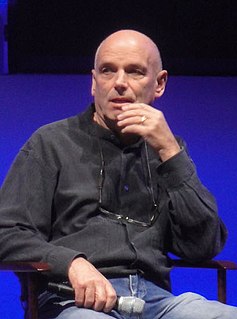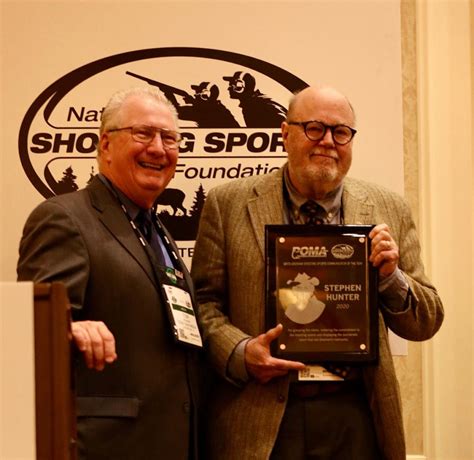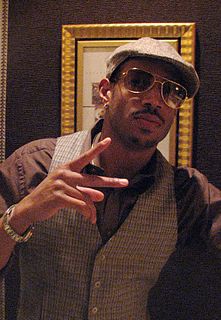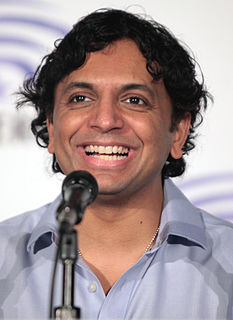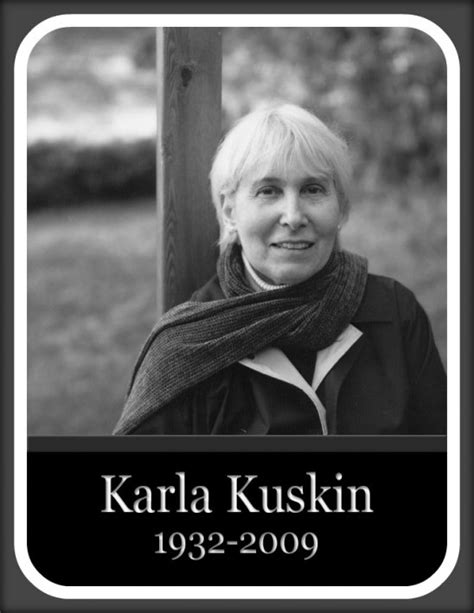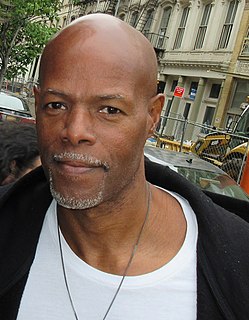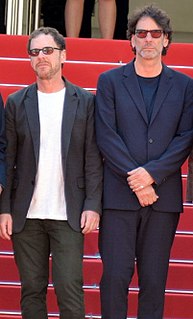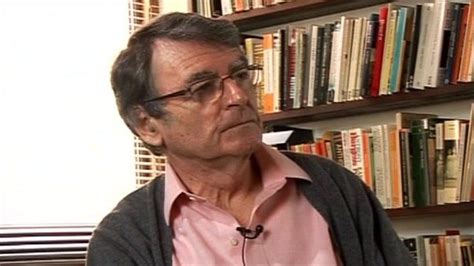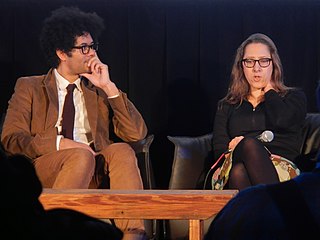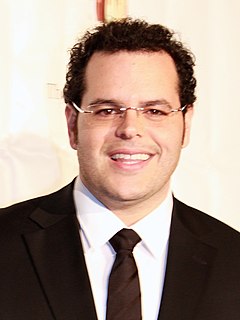Top 1200 Movie Critic Quotes & Sayings - Page 2
Explore popular Movie Critic quotes.
Last updated on November 19, 2024.
Edmund Wilson was our greatest American literary critic because he was more than a literary critic: He was a fearless, even radical judge of the society he lived in. (See, for example, _A Piece of My Mind_; _The Cold War and the Income Tax_; the introduction to _Patriotic Gore_.) Our conventional critics cannot forgive him for those scandalous lapses in good taste.
No publisher should ever express an opinion on the value of what he publishes. That is a matter entirely for the literary critic to decide. I can quite understand how any ordinary critic would be strongly prejudiced against a work that was accompanied by a premature and unnecessary panegyric from the publisher. A publisher is simply a useful middle-man. It is not for him to anticipate the verdict of criticism.
Since I'm a story-oriented critic, sometimes it's difficult to discuss issues without defining them. At the same time, I try not to give away anything that hasn't been given away in first half, in TV commercials, or that isn't obvious from the set-up of the movie. My editors are aware of this tendency of mine and read carefully for spoilers.
I tell everybody on the first day of making a movie that if anyone's here to further their career, they should leave. I'm gonna make the movie in such a way that we won't have a career when this movie comes out. Because the people who hold the moneybags are not going to want to share any of that money with us to make the next movie!
Mindfulness is the primary tool in that we get a little space between ourselves and the thoughts and then we actually can be more responsive, as in: Do I want to listen to that? Do I want to ignore it? Do I want to say "no thank you". Do I want to inquire if that's really true or helpful? So we start with mindfulness and we're not engaging, because as soon as we do that, we've given the critic authority. Instead, we want to notice the critic but not give it any attention, not really give it much value.
One of the best and most challenging books about Orwell is by the socialist literary critic Raymond Williams. As a critic - and, in some ways, as a figure, at least within the academy - Williams was what England had in the generation after Orwell, and toward the end of his life, he became more critical of his predecessor.
I never wanted to do music to get girls, right, to get popular, or anything like that. I really love music and I want to make it better the best I can. I can tell when something's real, or when something's put together. I can just feel it. So I'm my own worst critic and harshest critic and I just want to put honest music out there.
Popular culture as a whole is popular, but in today's fragmented market it's a jostle of competing unpopular popular cultures. As the critic Stanley Crouch likes to say, if you make a movie and 10 million people go see it, you'll gross $100 million - and 96 per cent of the population won't have to be involved. That alone should caution anyone about reading too much into individual examples of popular culture.
The way I try to explain it the best is that if Critic A from publication A hates our show, and Critic B from publication B loves our show, what are we supposed to do with that? We have to just respect everyone's opinions and go on making the show we want to make. I've never worked on a show that was altered by critical reception. You just can't afford to do that. So in that regard, it's actually no different that working in theater. It's just a lot more voices.
One Christmas, Dennis Dermody, the movie critic of 'Paper,' gave me 'Rock Hudson: A Gathering of Friends,' the master invitation list from Rock Hudson's memorial service. It's so great. Everyone's in it, with personal addresses all bound into a book. Someone else once gave me Ike Turner's will. I get great stuff.
A critic may reject some miracle stories as legendary, and not others, with no inconsistency at all for the simple reason that even if one holds miracles to be possible, one need not hold legends to be impossible! There are other factors, literary and historiographical ones, that might lead a critic to conclude that even though miracles can happen, it does not appear that in this or that case they did.
In editing, you really face what the movie is. When you shoot it, you have this illusion that you're making the masterpieces that you're inspired by. But when you finally edit the movie, the movie is just a movie, so there is always a hint of disappointment, particularly when you see your first cut.
Critical thinking does seem a superior sort of thinking because it seems as though the critic is actually going beyond the scope of what is being criticized in order to criticize it. That is only rarely a true assumption because, most often, the critic will seize on some little aspect that he or she understands and tackle only that.
The hardest thing in the world is being a critic of your own work. For me time has always been the best critic. If I can put something away and then come back, it's like taking a painting you're working on, turning it upside down, squinting at it, or walking away to get a new view. Time helps you know whether it's worth saving or whether it should be dumped.
Perhaps the critics are right: this generation may not produce literature equal to that of any past generation-who cares? The writer will be dead before anyone can judge him-but he must go on writing, reflecting disorder, defeat, despair, should that be all he sees at the moment, but ever searching for the elusive love, joy, and hope-qualities which, as in the act of life itself, are best when they have to be struggled for, and are not commonly come by with much ease, either by a critic's formula or by a critic's yearning.
Criticism on my works is like this: you've worked hard all of your life, you went to Oxford, and you've done this and that, and you're an art critic. Your job is to unravel the "secret" or whatever, and you come across an entity like me. It's going to piss you off. Because there's no great secret, what you see is what you get, and anyone can understand what I'm doing. So, it's almost like I make this critic-person redundant, just by my attitude, and they resent me for that.
All I am in private life is a literary critic and historian, that's my job...And I'm prepared to say on that basis if anyone thinks the Gospels are either legends or novels, then that person is simply showing his incompetence as a literary critic. I've read a great many novels and I know a fair amount about the legends that grew up among early people, and I know perfectly well the Gospels are not that kind of stuff.
Do not be critics, you people, I beg you. I was a critic and I wish I could take it all back because it came from a smelly and ignorant place in me, and spoke with a voice that was all rage and envy. Do not dismiss a book until you have written one, and do not dismiss a movie until you have made one, and do not dismiss a person until you have met them. It is a f@*$%load of work to be open-minded and generous and understanding and forgiving and accepting, but Christ, that is what matters. What matters is saying yes.
Paraphrase, in the sense of summary, is as indispensable to the novel-critic as close analysis is to the critic of lyric poetry. The natural deduction is that novels are paraphrasable whereas poems are not. But this is a false deduction because close analysis is itself a disguised form of paraphrase.
The critical sense is so far from frequent that it is absolutely rare, and the possession of the cluster of qualities that minister to it is one of the highest distinctions... In this light one sees the critic as the real helper of the artist, a torchbearing outrider, the interpreter, the brother... Just in proportion as he is sentient and restless, just in proportion as he reacts and reciprocates and penetrates, is the critic a valuable instrument.
Recently, I took my son to see The Haunted Mansion, which was one of the worst things (I hesitate even to call it a movie) that I have ever seen. He thought it was better than Finding Nemo and we had a fruitless argument which I'm sure made him acutely aware of the disadvantages of having a film critic for a dad.
You can do a good movie, or you can do a good movie that can help people to feel the idea of what it is like to live. It can be good in an artificial way; it can be also a good movie for your own existence. You don't know that when you do a movie. You don't know if you succeeded, which is the most difficult thing.
Melissa McCarthy just opened this new movie, “Identity Thief,” and Rex Reed, who’s a known critic, wrote a scathing commentary on her weight. I think that weight designation is one of the last frontiers of bullying. I don’t know what the right “ism” for it is, but I think that there’s a level of that that’s happening that’s certainly not okay.




